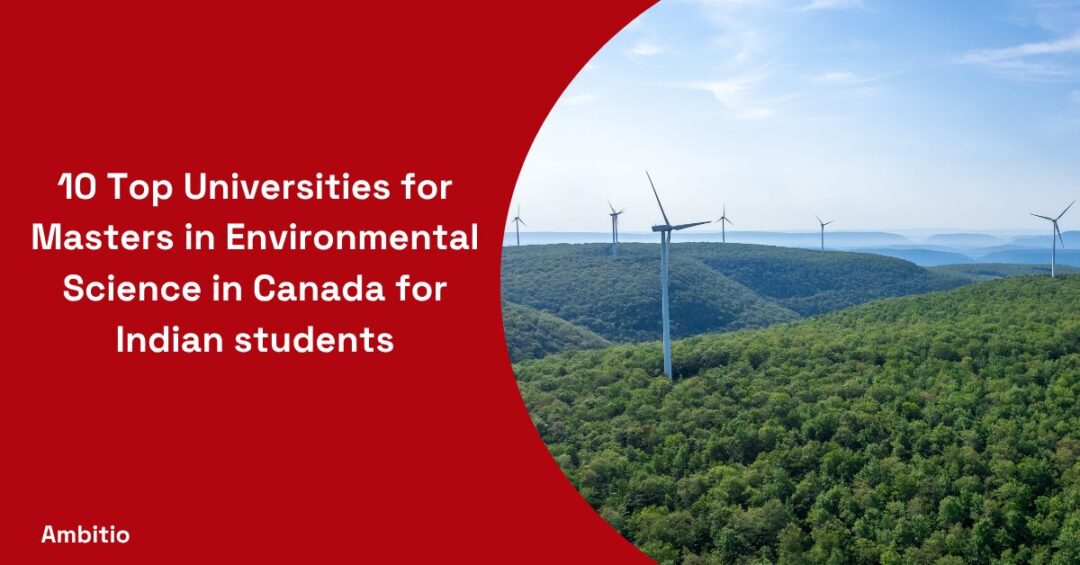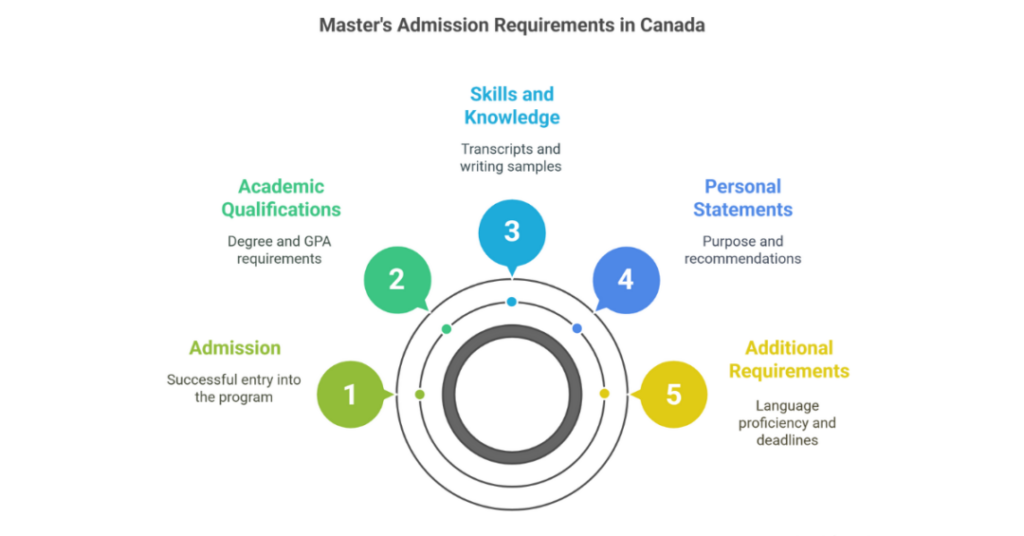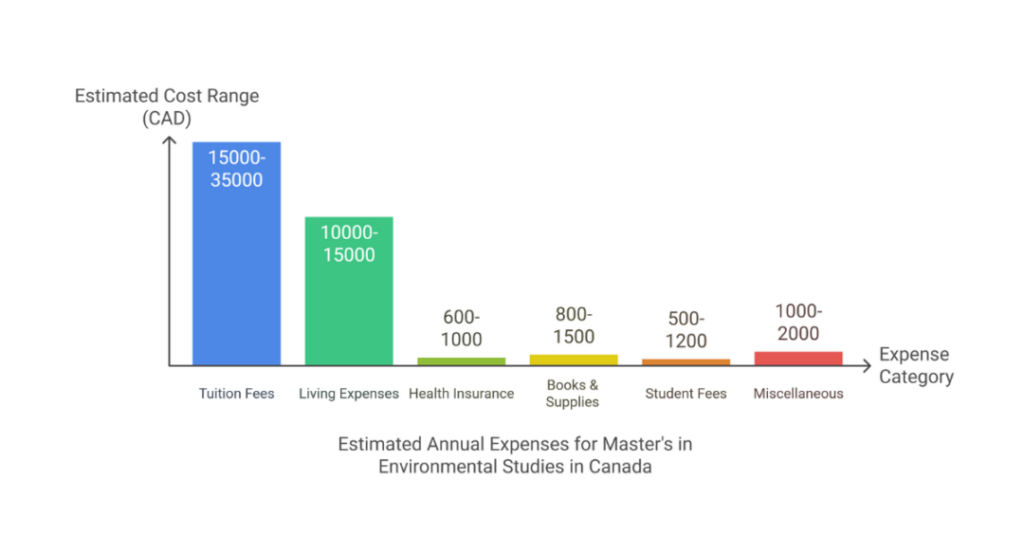9 June 2025
6 minutes read
10 Top Universities for Masters in Environmental Science in Canada for Indian students

Key Takeaways
- Masters in environmental science in Canada offers Indian students interdisciplinary learning, global research exposure, and high employability.
- Over 57% of applicants fail due to misaligned choices, ignored deadlines, or not contacting potential supervisors in advance.
- Scholarships, assistantships, and research funding make studying in Canada more affordable than most students assume.
Over 57% of Indian students applying for environmental science programs end up failing not because of a lack of interest, but because they are applying to the wrong program or not paying attention to specific admission requirements. Let’s be real with each other, simply having a degree in science is no longer enough.
Climate change, sustainability, and environmental policy all require graduate-level specialization. This blog cuts through all the noise by showcasing the 10 best universities for masters in environmental science in Canada, specifically tailored to help Indian students make more informed and smarter decisions.
Why Indian Students Are Choosing Canada for Environmental Science?
Indian students are increasingly drawn to masters in environmental science in Canada due to its strong focus on interdisciplinary research, global graduate studies infrastructure, and urgent work on environmental issues like biodiversity, ecosystem loss, and sustainable development.
With expert faculty members, flexible program options, and available funding options, Canadian graduate programs offer high-quality coursework, research projects, and real-world exposure in resource management, agriculture, and atmospheric sciences, making it a top destination for qualified international applicants.
10 Top Universities for Masters in Environmental Science in Canada for Indian students
Over 50 Canadian universities offer cutting-edge postgraduate degrees in environmental science. For Indian students, a masters in environmental science in Canada means access to global research, expert supervision, and interdisciplinary coursework in fields like ecology, resource management, and atmospheric sciences.
Below is a list of the best universities, ideal for international students seeking impactful graduate and postdoctoral studies.
| University | Province | Program Name | Highlights |
|---|---|---|---|
| UBC | British Columbia | MSc Environmental Science | Ecology, reconciliation, pollutants, research grants, contact supervisor prior |
| University of Toronto | Ontario | MES Environmental Science | Interdisciplinary, sociology, fresh water, analysis and interpretation |
| University of Alberta | Alberta | MSc Earth & Atmospheric Sciences | Natural environment, graduate studies, internal/external scholarships |
| McGill University | Quebec | MSc Bioresource Engineering | Resource management, agriculture, funding options, supervision |
| University of Waterloo | Ontario | MES Environmental Studies | Environmental issues, elective courses, assistantships available |
| University of Guelph | Ontario | MSc Environmental Sciences | Strong in ecology, ecosystem analysis, transcript required |
| Simon Fraser University | British Columbia | MSc Environmental Toxicology | Sociology, coursework, english language proficiency, credential recognition |
| Dalhousie University | Nova Scotia | MSc Resource & Environmental Management | Sustainable development, full-time students, contact faculty for supervision |
| University of Saskatchewan | Saskatchewan | MSc Environment & Sustainability | Canada research, pollutant analysis, social and cultural factors |
| University of Ottawa | Ontario | MSc Environmental Sustainability | MES program, graduate certificate in environmental policy, deadline-sensitive |
Eligibility and Admission Requirements for Master of Environmental Science for Indian students in Canada
Getting into a top-tier university for a master’s in environmental science in Canada requires more than just interest, it demands preparation. For Indian students, understanding the eligibility and admission process for MS in Canada is key to being seriously considered for admission into competitive graduate programs focused on the study of the environment.

Here’s what you need to apply:
- A 4-year undergraduate degree in a relevant field of study such as biology, ecology, or environmental science.
- Minimum GPA as per the university’s qualification criteria (usually 3.0/4.0 or equivalent for graduate students).
- Proof of skills and knowledge through transcripts, resume, and academic writing samples required to submit.
- Strong statement of purpose and letters of recommendation (often from professors or professionals in environmental work).
- Meet English language proficiency requirements (IELTS/TOEFL), especially if your medium of instruction wasn’t English.
- Identify a potential supervisor or supervisory faculty member prior to submitting your application, especially for research-intensive master of science or integrative programs.
- Clear understanding of courses offered, electives, and program structure in your chosen degree in Canada.
- Some programs may also require GRE (though not always mandatory for Indian students).
- Application deadline varies; typically between December and February for Fall intake.
- Look for available Canada university scholarships for International students, internal and external funding, or assistantships for support.
- Your program may also assess interest in the environment and natural sciences and your readiness for fieldwork or research.
Course Structure and Specializations in Environmental Science
The course structure for a masters in environmental science in Canada is designed to blend theory with applied research, giving Indian students a strong foundation in environmental systems, sustainability, and scientific analysis. Programs are typically 1.5 to 2 years long and are offered as thesis-based or course-based options.
Key Components:
- Core Courses: Environmental research methods, data analysis, environmental law, and policy.
- Electives: Students can choose from climate change, toxicology, environmental modelling, or sustainability planning.
- Research/Thesis: For thesis-based programs, students work closely with a supervisor on original research.
- Fieldwork & Labs: Emphasis on real-world application through lab sessions, environmental assessments, and field studies.
Popular Specializations:
- Climate Change and Sustainability
- Environmental Toxicology
- Water Resource Management
- Conservation Biology
- Environmental Impact Assessment
- Urban Ecology
- Environmental Policy and Governance
This flexibility allows Indian students to tailor their learning journey based on career goals, research interests, and global challenges in environmental science.
Cost of Studying Master of Environmental Studies in Canada
Pursuing a Master of Environmental Studies in Canada offers Indian students access to world-class education, practical fieldwork, and interdisciplinary research. However, understanding the cost of studying is crucial before applying.

Here’s a breakdown of the average tuition and living expenses for international students.
| Expense Category | Estimated Cost (Per Year in CAD) | Notes |
|---|---|---|
| Tuition Fees | 15,000 – 35,000 | Varies by university and program type (thesis vs. course-based) |
| Living Expenses | 10,000 – 15,000 | Includes rent, food, utilities, and transportation |
| Health Insurance | 600 – 1,000 | Mandatory for all international students |
| Books & Supplies | 800 – 1,500 | Depends on program and course selection |
| Student Fees | 500 – 1,200 | Covers access to campus facilities and student services |
| Miscellaneous | 1,000 – 2,000 | Personal expenses, leisure, travel |
Scholarships and Financial Aid Options for Masters in Environmental Science in Canada
Pursuing a masters in environmental science in Canada can be financially challenging for Indian students, but there are several scholarships for international students and financial aid options that can significantly ease the burden.
Many universities and government bodies offer merit-based, need-based, and research-specific funding to support international graduate students.
| Scholarship/Funding Option | Offered By | Amount (CAD) | Eligibility Highlights |
|---|---|---|---|
| Vanier Canada Graduate Scholarships | Government of Canada | $50,000/year | Exceptional academic record, research potential |
| Ontario Graduate Scholarship (OGS) | Province of Ontario | $15,000/year | Full-time graduate students in Ontario universities |
| UBC Four Year Doctoral Fellowship (4YF) | University of British Columbia | Varies (incl. stipend) | For research-based Master’s progressing to PhD |
| University-specific Entrance Scholarships | Individual Universities | $5,000 – $25,000 | Based on academic excellence and leadership |
| Graduate Research/Teaching Assistantships | Most Canadian Universities | Partial to Full Tuition + Stipend | Requires faculty nomination or application through supervisor |
| IDRC Research Awards | International Development Research Centre | Up to $20,000 | Focused on environment and sustainability in developing countries |
Career Opportunities After Masters in Environmental Science in Canada
Graduating with a masters in environmental science in Canada opens doors to impactful and well-paying careers across government, industry, and academia.
For Indian students, this degree not only builds deep expertise in sustainability and ecosystem management but also provides a pathway to permanent residency through post-study work options.
| Job Title | Average Salary (CAD/year) | Common Employers | Key Skills Required |
|---|---|---|---|
| Environmental Consultant | $60,000 – $85,000 | Private firms, NGOs, Government | Policy analysis, impact assessment, regulations |
| Climate Change Analyst | $65,000 – $90,000 | Environment Canada, UN, Think Tanks | Data modeling, carbon footprint analysis |
| Sustainability Officer | $60,000 – $80,000 | Corporates, Municipalities | ESG reporting, circular economy strategies |
| Environmental Scientist | $55,000 – $75,000 | Research Institutes, Industry Labs | Field research, GIS, lab skills |
| Resource Management Specialist | $60,000 – $85,000 | Forestry Dept., Natural Resource Canada | Conservation planning, resource mapping |
| Waste Management Analyst | $50,000 – $70,000 | Recycling Companies, City Councils | Urban planning, waste auditing |
| Water Quality Specialist | $60,000 – $82,000 | Environmental Agencies, Utilities | Hydrology, pollution testing, ecosystem services |
| Academic Researcher/PhD Candidate | $25,000 – $35,000 (stipend) | Universities, Canada Research Chairs | Publishing, grant writing, lab supervision |
Conclusion
Pursuing a masters in environmental science in Canada is more than just earning a degree, it’s a chance to shape global sustainability and your own future. From world-class universities to career-ready training, Canada offers Indian students the perfect launchpad for environmental impact.
Want to make sure your profile stands out to top universities? Ambitio helps you build a winning application, from profile building and SOPs to scholarship support and university shortlisting.
Don’t just apply. Apply Smart.
Join Ambitio Elite today and turn your environmental passion into a global opportunity.
FAQs
What are the admission requirements for a masters in environmental science in Canada?
To pursue a masters in environmental science in Canada, you typically need a bachelor’s degree in environmental science or a related field, proof of English proficiency (like IELTS/TOEFL), letters of recommendation, and a statement of purpose.
How long does it take to complete a masters in environmental science in Canada?
A masters in environmental science in Canada usually takes 1 to 2 years to complete, depending on the university and whether the program is thesis-based or coursework-based.
What is the average tuition fee for a masters in environmental science in Canada?
The tuition fee for a masters in environmental science in Canada varies by university, generally ranging from about $6,700 to $36,000 CAD for international students.
Which universities offer a masters in environmental science in Canada?
Top universities offering a masters in environmental science in Canada include the University of Toronto, University of Guelph, Dalhousie University, University of Lethbridge, Royal Roads University, Trent University, University of Ottawa, and University of Saskatchewan.
What are the career prospects after completing a masters in environmental science in Canada?
Graduates of a masters in environmental science in Canada can work as environmental consultants, scientists, policy analysts, sustainability managers, ecologists, and more, in both public and private sectors.
Is work experience required to apply for a masters in environmental science in Canada?
Some programs for a masters in environmental science in Canada require relevant work or volunteer experience, especially for flexible admission pathways.
What are the English language requirements for a masters in environmental science in Canada?
Most universities require an IELTS score of 6.5–7.0 or a TOEFL score of 88–93 for admission to a masters in environmental science in Canada.

You can study at top universities worldwide!
Get expert tips and tricks to get into top universities with a free expert session.
Book Your Free 30-Minute Session Now! Book a call now




























